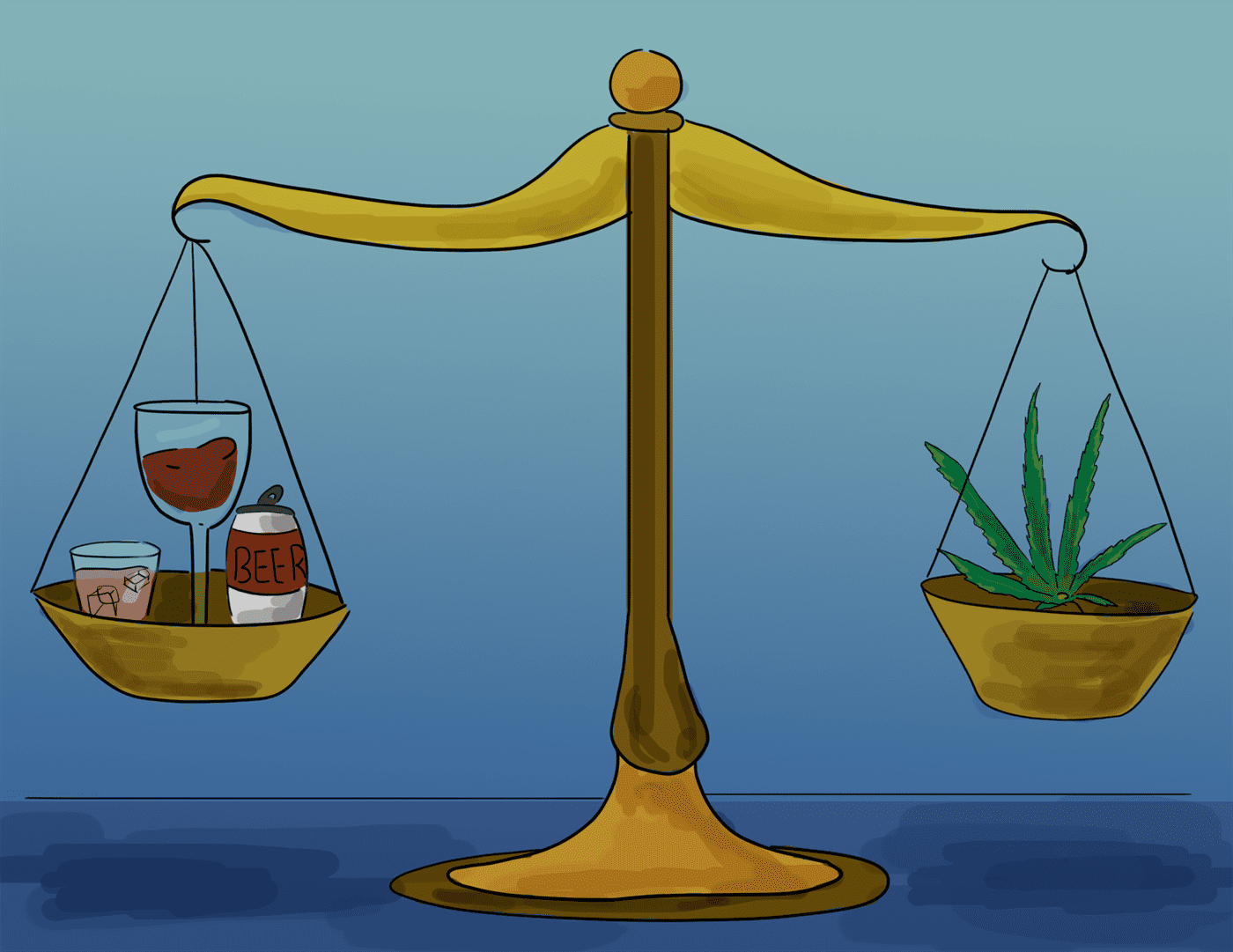Many students at Montclair State University are under constant fear of being punished by university authorities for cannabis use. Meanwhile, alcohol is bought and used by underage students every week, and discipline for that drug consumption is far and few between.
Due to this institutional, irrational stigma surrounding marijuana use, people continue to be punished for using a drug with a vast range of positive qualities that make it much more safe and helpful than its far more dangerous alcohol counterpart.
The stigma surrounding cannabis stems from the rise of immigration from Mexico following the Mexican Revolution in the early 20th century. Despite cannabis already being a popular ingredient in American medicine since the mid-19th century, the fear of Mexican culture and customs invading America ignited a fear that lead to the plant’s intense xenophobia-fueled stigma.
From there, massive governmental advertising campaigns claimed that marijuana use led to a rise in violence and lewd sexual behavior.
Even though the Marihuana Tax Act of 1937 was found unconstitutional in 1970, it was placed on Schedule I federal classification following the passage of the Controlled Substances Act the same year, where it remains to this day.
In 1920, the 18th Amendment was passed and the era of Prohibition began, banning the production, sale and transportation of alcohol.
Inevitably, compliance with the new law did not occur without resistance. What was intended to prevent crime ended up having the opposite effect.
Bootlegging, speakeasies and bathtub gin rose to great popularity and profit, and due to a lack of government regulation, the alcohol that was being illegally produced was often harmful for consumption.
The same has occurred in the production and sale of marijuana. Because it remains on the controlled substances list, PCP-laced and synthetic marijuana is sold and consumed by unknowing recipients, who risk damaging their health permanently.
However, the positive and healing remedies of unaltered cannabis are seemingly endless. Prescribed medicinal uses include treatment for glaucoma, Alzheimer’s, Crohn’s disease, epilepsy and some forms of cancer.
Additionally, marijuana can be used to combat appetite loss and anorexia, nausea, headaches and other pain, as well as mental health disorders like schizophrenia and Post Traumatic Stress Disorder.
Marijuana saves thousands of lives every year, while alcohol does just the opposite. The side effects of alcohol consumption that are casually indulged are actually quite frightening.
The lack of social inhibitions, memory loss, slurred speech and others are your body’s way of trying to stay alive. The more alcohol you drink, the more non-essential functions begin to shut down in order to save your vital ones.
This is why when one has consumed an amount of alcohol that their body cannot handle, they often get alcohol poisoning and regurgitate it.
According to the National Institute of Health, an estimated 88,000 Americans die every year from alcohol related causes, making it the third most prevalent cause of death in the U.S.
The number of people who died from a marijuana overdose last year is zero.
It is clear, from a health perspective, that the benefits of marijuana far outweigh the benefits of alcohol, if there even are any, other than heightening social experiences.
Cannabis is a plant that grows naturally from the earth. Its benefits do not have to be reaped from any of its forms, other than its most basic. Alcohol is a drug made by humans, with all of its harmful ingredients knowingly added.
That is not to say that alcohol should be made illegal. Like marijuana, if it were to be legalized, alcohol is a recreational drug, but to keep a potentially life-saving drug like marijuana out of the hands of those who can benefit from it, just because of a myth that its as harmful as a drug like heroin, is foolish.



